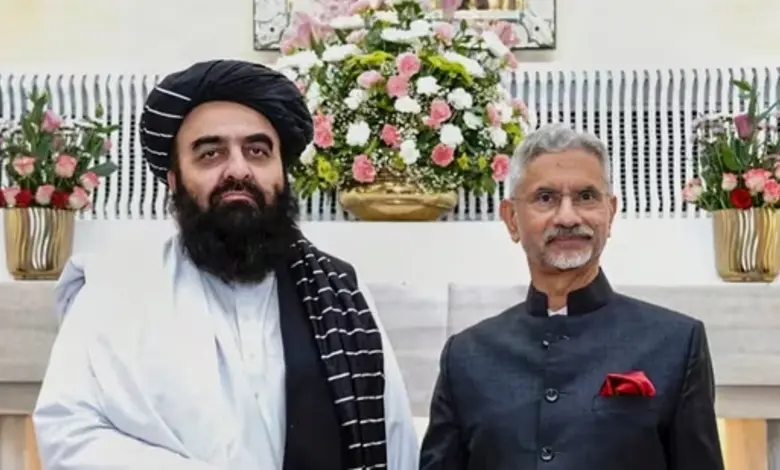In a swift diplomatic rebuke, Pakistan has lodged a formal protest with Afghanistan’s ambassador in Islamabad, voicing sharp objections to a recent joint statement issued by India and Afghanistan that affirmed Jammu and Kashmir’s status as Indian territory. The move, which Pakistan labeled a blatant breach of United Nations Security Council resolutions, underscores deepening frictions in the region just one day after the two South Asian neighbors sought to bolster their bilateral rapport.
The controversy erupted following high-level talks in New Delhi on October 10, 2025, where India’s External Affairs Minister S Jaishankar hosted his Afghan counterpart, Amir Khan Muttaqi—the Taliban’s foreign minister—for the first such engagement since the group’s 2021 takeover of Kabul. The resulting communiqué, released after their meeting, drew Islamabad’s ire for explicitly recognizing Jammu and Kashmir as an integral part of India. Pakistan’s Foreign Ministry conveyed its “strong reservations” directly to Afghanistan’s Additional Foreign Secretary for West Asia and Afghanistan affairs, arguing that the phrasing contravenes longstanding UN mandates on the disputed territory.
ALSO READ : Taliban kill 12 Pakistani soldiers in cross-border clashes, seize army outposts
Beyond the territorial dispute, the statement highlighted mutual commitments to combat terrorism, with both nations condemning the deadly April 22 attack in Pahalgam, Jammu and Kashmir, which killed 26 people. “Both sides unequivocally condemned all acts of terrorism emanating from regional countries,” the document stated, emphasizing the need for enhanced peace, stability, and trust across borders. Jaishankar expressed gratitude to Afghanistan for its firm denunciation of the incident.
Tensions escalated further over Muttaqi’s public comments during his India visit. The Taliban official described terrorism as a domestic challenge for Pakistan, a stance that prompted a pointed retort from Islamabad. Pakistan’s Foreign Ministry asserted that it had previously furnished Kabul with intelligence on terror networks operating from Afghan soil targeting Pakistani interests. “It was emphasised that by deflecting the responsibility of controlling terrorism towards Pakistan cannot absolve the interim Afghan government of ensuring peace and stability in the region and beyond,” the ministry declared.
The exchange came amid a fresh wave of violence in Afghanistan, including multiple explosions in Kabul that Muttaqi attributed squarely to Pakistan. In remarks reported by news agency ANI, he stated: “We consider this act of Pakistan wrong. Problems cannot be solved like this… We have kept the door to discussion open. They should solve their problem on their own. Afghanistan has peace and progress after 40 years.” Muttaqi reiterated that Afghan territory would never serve as a launchpad for attacks on other nations.
Pakistan, in response, reiterated its policy barring unauthorized Afghan nationals from remaining in the country, affirming its sovereign right to manage foreign presences. Muttaqi’s trip to India, facilitated by a temporary exemption from the UN Security Council Committee, marked a tentative thaw in New Delhi-Kabul relations. During the discussions, he described India as a “close friend” and pledged: “I am happy to be in Delhi, and this visit will increase the understanding between the two countries. India and Afghanistan should increase their engagements and exchanges… We will not allow any group to use our territory against others.”
As regional powers navigate these fault lines, the episode highlights the precarious balance between fostering cooperation and safeguarding territorial claims, with terrorism remaining a flashpoint that could either unite or further divide neighbors.
